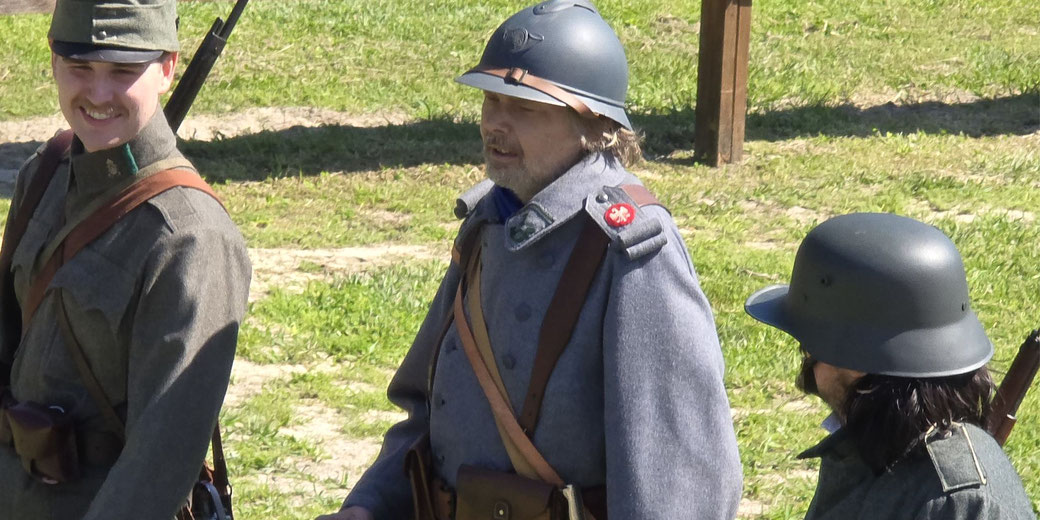Answering the call: Why did millions volunteer for WWI?

World War I, often referred to as the Great War, it remembered today as a universally negative experience. The tales of mud-soaked slaughter in the monotonous trenches of the western front have become the defining image of the conflict.
However, many today forget that millions of people from all around the world actively chose to sign up for the war.
So why did so many volunteer for the ensuing slaughter?
The answers to this question are surprisingly complex.
Why did the First World War happen?
The outbreak of World War I in 1914 was partially the result of the complex political, economic, social, and cultural factors that existed in the late 19th and early 20th centuries.
Rising nationalism, militarism, and a tangled system of alliances among European powers all began fuel to the fire of a brewing problem.
Then, when the assassination of Archduke Franz Ferdinand of Austria-Hungary occurred in June 1914, it ignited these underlying tensions, leading to a rapid cascade of declarations of war.
Overnight, governments mobilized their populations with fervent appeals to national pride and duty, resulting in mass enlistment.
But, the world wasn't ready for the industrial scale of the coming war. The Industrial Revolution during the preceding two centuries had transformed economies, creating both opportunities and disparities.
In many countries, joining the military offered steady pay and the promise of social mobility, particularly for those from disadvantaged backgrounds.
The societal norms of the time also glorified military service and the masculine ideals of bravery and honor.
Media owners helped to spread these ideals through literature and art. These often-portrayed war as a noble endeavor, and peer pressure played a significant role in encouraging enlistment.
The main reasons people signed up for war
The motivations for enlistment in World War I were as diverse as the individuals who joined the fight.
From personal beliefs to societal influences, the reasons were complex and often intertwined.
Here are some of the most common:
Patriotism and Nationalism
For many, the call to arms was a call to defend one's country and uphold national honor.
The fervent nationalism of the time, stoked by political leaders and media, created a sense of duty and pride that resonated with large segments of the population.
The idea of fighting for one's homeland was a powerful motivator, which was supposed to transcend social class and regional differences.
Economic Opportunities
The promise of steady pay, pensions, and potential social advancement made military service an attractive option for many, especially those from economically disadvantaged backgrounds.
For some, enlistment was seen as a pathway out of poverty or a chance to escape the monotony of their daily lives.

Social Pressure and Propaganda
Governments and private organizations launched extensive propaganda campaigns to encourage enlistment.
Posters, speeches, and songs appealed to emotions, glorifying the war effort and vilifying the enemy.
Peer pressure and societal expectations also played a role, as men were often expected to enlist to prove their masculinity and loyalty.
Adventure and Escapism
The romanticized portrayal of war in literature and media, coupled with a lack of understanding of the true horrors of modern warfare, led some to see enlistment as an opportunity for adventure and personal growth.
For young men in particular, the war was often viewed as a chance to prove oneself and escape the constraints of ordinary life.
Conscription and Legal Obligations
In many countries, conscription laws required eligible men to serve in the military.
While some willingly complied, others were coerced or faced legal penalties for refusal.
Conscription ensured a steady flow of recruits but also led to tensions and resistance in some communities.
Different motivations in different countries
Since World War I was a global conflict, it drew in participants from diverse cultural, political, and economic backgrounds.
The motivations for enlistment, therefore, varied widely across different countries.
These frequently reflected unique national circumstances and priorities.
Allied Powers
British enlistment was often driven by a sense of duty to protect the empire. This was mostly used in the colonial regions, like Australia.
It played on the emotional connection these areas felt with the 'mother country'.
Close to home in England, the Pals Battalions, where friends and neighbors enlisted together, played a key role in encouraging participation.
French enlistment, in contrast, was fueled by a desire to reclaim Alsace-Lorraine.
This region had been lost to Germany in the previous century, and the chance to regain it elicited a strong sense of national pride.
In Russia though, patriotic fervor was regularly mixed with religious sentiment.
This was exemplified in the loyalty commoners felt to the Tsar. However, in practical terms, conscription was the primary means of recruitment.
Central Powers
Similarly, German enlistment was fuelled by a sense of national unity and militaristic tradition.
Later in the way, economic incentives and social pressure were also influential. As British blockades of German ports limited access to food and luxuries, army pay became increasingly attractive as a means to support people's families.
Wealth made a difference...
One factory that is often forgotten in the discussion around enlistment motivations is the role that social position and wealth played.
For the elite in society, enlistment often meant officer positions and a chance to demonstrate leadership and patriotism.
For working-class individuals, enlistment offered economic opportunities. Regular soldier pay was sometimes better than what they could achieve in common laboring roles.
What do you need help with?
Download ready-to-use digital learning resources
Copyright © History Skills 2014-2025.
Contact via email
With the exception of links to external sites, some historical sources and extracts from specific publications, all content on this website is copyrighted by History Skills. This content may not be copied, republished or redistributed without written permission from the website creator. Please use the Contact page to obtain relevant permission.





